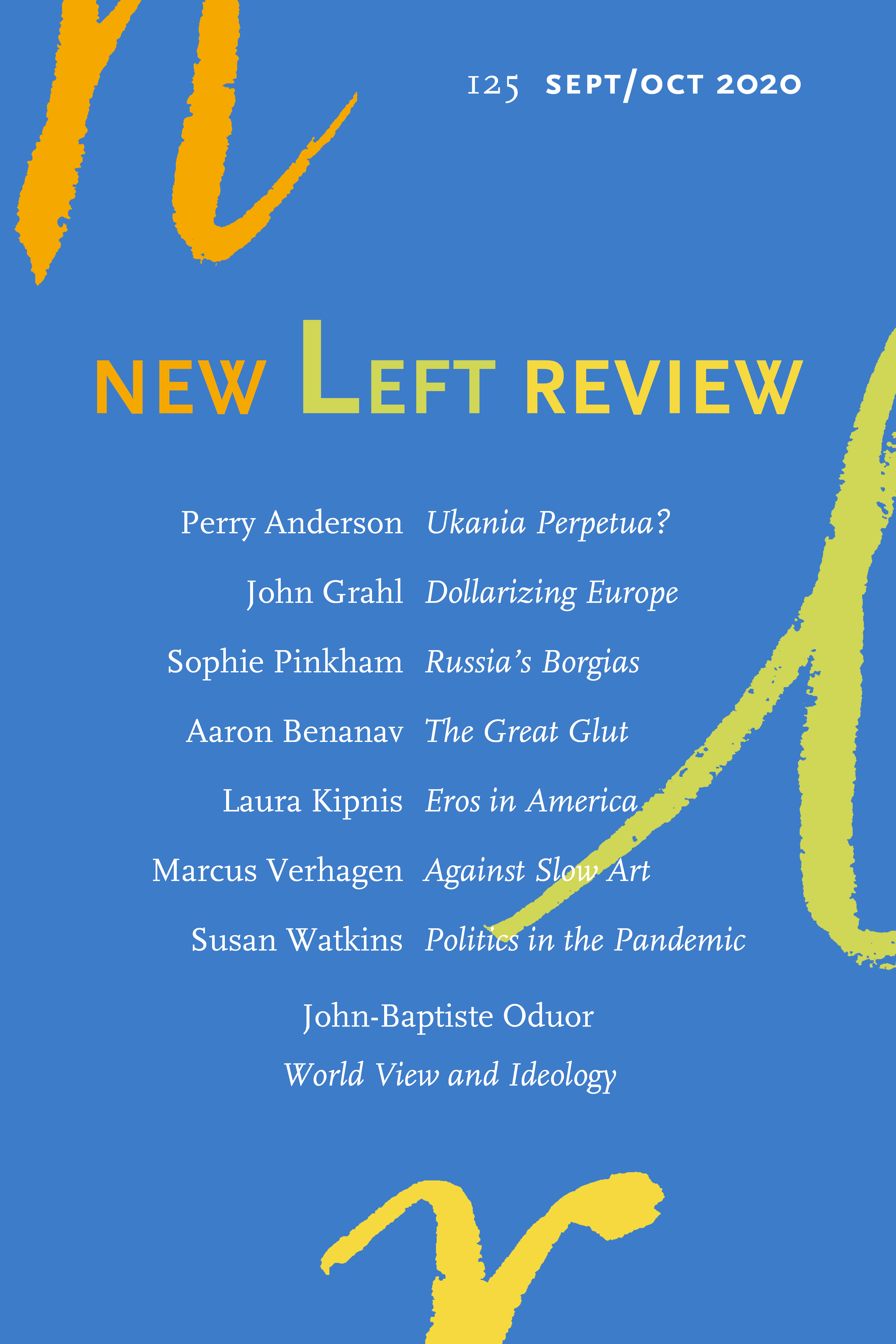In 2015, Cameron was returned to office without need of the Liberal Democrats, who were decimated at the polls, and in the wake of Labour’s renewed defeat, Corbyn was elected its leader in the first one-person-one-vote election in the party’s history. Within a year came the referendum, called and lost by Cameron on Britain’s membership of the EU.32 His decision to call one, product of long-standing divisions among the Tories, was designed to silence the Eurosceptic wing of his party, in a careless display of class insouciance that with united establishment support—extending from the City to the TUC, not to speak of all-party backing—victory was assured. But as in France and the Netherlands, a popular rebellion against the whole governing class led to the opposite outcome. Two thirds of the working class voted for Leave, a higher proportion than any stratum—including even the best-off—voting for Remain, on a larger turn-out than seen in years. London, beneficiary of the financial bubble and closer to Paris than Manchester by rail, voted heavily for Remain; the abandoned industrial North, hardest-hit by austerity, heavily for Leave. On the left, opinions had divided. Those in favour of Remain argued that the xenophobia of Brexiteers of the right made the EU a lesser evil, those in favour of Leave that departure would be a blow to the neo-liberal oligarchies on both sides of the Channel: each voting negatively against, rather than for, anything. But what would Brexit actually mean for the European Union, or for Ukania in parting with it? So far, all that was clear was that ‘Blairized Britain has taken a hit, as has the Hayekianized EU’ and ‘critics of the neoliberal order have no reason to regret these knocks to it’, against which the entire global establishment had inveighed.
More fine-grained analysis made clear the extent to which the Brexit result, though certainly multi-stranded in motivation, was the expression of a regional and social revolt in the North of England: Leave majorities were concentrated in former strongholds of Labour, now reduced to a hinterland of decayed industries and discarded proletarian households.33 There was hostility to immigrants in this part of the country, as elsewhere in Britain. However, that it was not the primary driver of the outcome could be deduced from Labour’s unexpected recovery in the election of 2017, once Corbyn campaigned on a platform amounting to a rejection of the whole neo-liberal order in place since the 1980s. In the face of a high Tory vote, he not only held most of the North, but swept the youth of the country by margins never previously approached by Labour, in what was now a second popular uprising against the entire British establishment. Yet Corbyn’s position remained tenuous in his own party, whose permanent apparatus and parliamentary delegation remained ferociously opposed to him.34 The small team around him lacked any preparation for government in what would be the predictable conditions of an implacable siege by capital and the media. There were no grounds for euphoria.
…
Britain’s liberal market economy—read: secular eversion—generated the two-fold revolt that produced Brexit. The victory of Brexit led to Conservative capture of a majority of the working class. Working-class expectations require concessions from a suddenly altered Conservative regime that Brexit impedes. The desertion of its proletarian base leaves Labour sociologically adrift in the eddies of a protean middle class. Its share of the middle class is attached to Europe, no part of it more passionately than the liberal intelligentsia. Attracted towards Labour by its stance in the cultural war over Europe, the English intelligentsia is alienated from it by what became of its own principal habitat under it. In Scotland, alienation of all classes of society from Labour has given power to a nationalism looking to Europe. Departure from Europe has both inflamed Scottish nationalism and entrapped it. The price of departure, indexed by the EU to political not economic considerations, has left Britain’s rulers answerless politically and, in all probability, the wells of Brexit further poisoned economically. No part of the current configuration is independent of the others. Their nexus is bound to dissolve, in one way or another. When or how is anyone’s guess.
…
32 Susan Watkins, ‘Casting Off?’, NLR 100, July–August 2016.
33 Tom Hazeldine, ‘Revolt of the Rustbelt’, NLR 105, May–June 2017.
34 Daniel Finn, ‘Crosscurrents’, NLR 118, July–August 2019.
